I often get asked some version of this question by students, readers of my books, at seminars and lectures, media interviews–or just email inquiries. After all, I teach in a Department of Religious Studies at UNC Charlotte (1989 to present), and previously was on the faculties in the Religion Department at the College of William and Mary (1985-1989), and the Department of Theology at the University of North Dame (1979-1985). In our system of higher education here in the United States, and increasingly in Europe and elsewhere, the academic study of Religion/Religious studies is to be distinguished from the faith enterprise of Theology. So teaching at Notre Dame in the 1970s was different on several levels from teaching at William and Mary or UNC Charlotte–both public universities funded by taxpayers, with a commitment to first amendment rights. Studying “religion” is a fundamental component of the Humanities–along with history, philosophy, anthropology, and sociology. My own focus has been on historical texts, material evidence, and the resulting “history of ideas” within the periods upon which I focus. However, all of us in this the broad field of Religious Studies deal simultaneously with culture, history, texts, and tradition, in whatever we do. I have published eight major books over 35 years and over 50 articles, most of which are on-line, with more to come. [1]My first book, Things Unutterable: Paul’s Ascent to Paradise was published in 1986 but is long out of print and sells for ridiculous sums on Amazon–like $500 a copy! I have issued a new … Continue reading

The question–“What do you believe?”–is a natural one, considering that I work as a scholar in academic study of earliest Christianity. For many this comes down to one word, namely–Jesus! Sometimes it is phrased with a bit of a “twist”–especially by evangelical folks–“Professor Tabor, are you a believer?” That question always gets me–even though I know precisely what the questioner means. It is tempting to respond–believer in what? But that would be snarky and with all these questions it is pretty clear where people are coming from. Either they are thinking–Prof. Tabor has studied these biblical subjects in such depth for the past forty years so one wonders what he thinks of this or that article of faith or tradition, given his learning and focus. Or, is he on some level on the “inside” or “outside” of a confessing biblical “faith” community? People love labels, tags, or other forms of shorthand and pigeonholing when it comes to religious faith. My chosen tag would be “human being” with all that implies in terms of a sentient, rational, and I hope, homo sapien–with an emphasis on the adjective.. I am not fundamentally opposed to such labels, but coming up with such a tag that would clarify rather than cloud one’s intended meaning is a challenge.
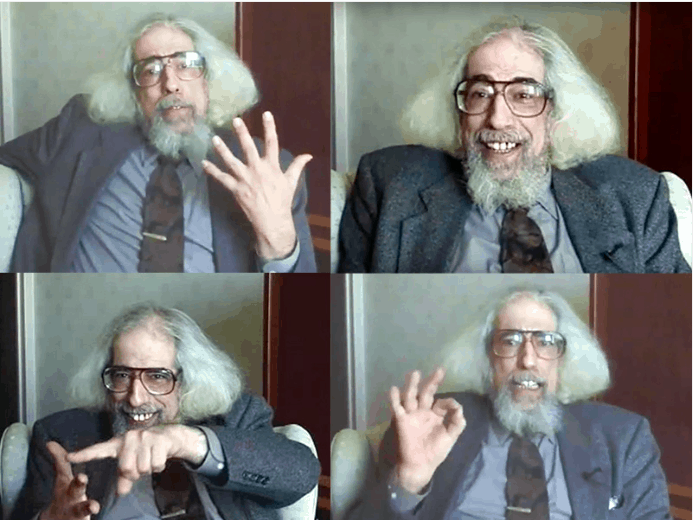
I have never tried to “hide” my views on religion, or the Bible, or early Christianity–I think my writing, lectures, and media interviews pretty well lay out where I stand in valuing the historical-critical approaches to the traditions I study–namely ancient Judaism and earliest Christianity. At Chicago I studied with the late great Jonathan Z. Smith (see here, here, and here), in whose shadow I stand after all these years. I think of him daily and his influence on my teaching is formative. If I could be a hundredth of what he was in the classroom I would be a star professor. He taught me first and foremost to consider the familiar strange and the strange familiar–especially when it comes to the diverse traditions we identify as “Christian” and “Jewish” in the Hellenistic period. I gave a lecture on this subject in 2018–just after he died, which you can read here. [2]It is now published in Remember J. Z. Smith: A Career and its Consequences, edited by Emily D. Drews and Russell T. McCutcheon (Bristol, CT: Equinox, 2020) 109-116.
To be a fundamentalist, first of all you need an inspired book or prophet or messiah, then you need to forget that your book, prophet, or messiah has a history. Anon
What I came to see was that the “locative” view of humanity’s place within the cosmos, that prevails in the ancient Near East, as reflected in most parts of the Hebrew Bible, was fundamentally displaced and replaced with the perceptions of a vastly expanded dualistic cosmos in which humans were aliens who belonged, fundamentally, not on earth, but in heaven. As one ancient put things, the central human questions are: “Who we were, what we became, where we were, where into we have been thrown, whereto we speed, wherefrom we are redeemed, what birth is, and what rebirth is.”
Smith brilliantly characterized this view “utopian” in contrast to the “locative.” Hellenistic religions are first and foremost religions of “salvation” or rescue, as human beings, aliens and strangers in a strange land, long for a return to a heavenly “home” beyond the material world. This fundamental shift lies at the heart of all forms of emerging Hellenistic religiosity of the period–including Judaism and early Christianity. I am aware of no exceptions. It is literally the idea that “took over the world,” and it remains to this day the fundamental way we moderns think of “religion.” Apocalyptic eschatology–the area upon which I have most focused–lies at the core of this new world view, with its hope for imminent cosmic “salvation” from the temporal world of death, decay, and sin into which we have fallen.
On a more personal philosophical level I identify with the “locative.” As for me, I’m with Robert Frost, who poetically confessed that the “child” in all of us, climbing skyward on those swaying birches must return to earth, ever affirming: “The earth’s the right place for love, I don’t know where it’s likely to go better.” This includes the central idea of the sublime “Creation Hymn” of Genesis 1–in which the creation is declared not only good but “very good,” and a “fused” male-female-humanity is called upon to reflect the image and likeness of the Creator, live in harmony with the creatures of the world, and make the right choices of good over evil. I love that there is little to nothing on “afterlife” or the “world to come” in the entire Hebrew Bible–with the possible exception of the late apocalyptic book of Daniel and the so-called Isaiah “Apocalypse,” (Isaiah 24-27) which no one seems to know how to date. The ideal future is a potential “news heavens and new earth” in which humans neither “hurt nor destroy” the animals, and the earth is full of the “knowledge of the Lord” as the waters cover the sea. And yes, all those Edenic “wolf lying with the lamb” kinds of images. Many decades ago, influenced primarily by the example of JZ Smith, his vegetarianism and his wise and kind ways, I tried to adopt the “Do no harm” ethic, especially towards those “creatures great and small,” so much as possible, as a tiny way of doing the “millennial” thing here and now.
And to the extent that the historical Jesus reflected that Hebraic perspective–such as “let your will be done on earth, as it is in heaven” or “Why do you call me good, there is one good, God,”–throwing himself against that wheel of history of which Schweitzer wrote, speaking truth to power, and being crushed in the process, I am a “Jesus” guy, just as I am a Moses, Jeremiah, Hosea, and Amos guy. I published an article years ago, “Personal Reflections on the Hebrew Bible and the Greek New Testament,” in the Journal of Reform Judaism years ago, that tries to express this in more generic ways. One happy discovery I made much later in my career was that Frank Moore Cross and I shared some common perspectives in this regard, and we were able to talk face to face a couple of decades ago. I wrote about that here, “Frank Moore Cross on the Hebrew Bible and the New Testament.”
Regarding the Hebrew Bible my favorite web site by far is TheTorah.com. The variety and depth of studies and topics covered on this site is unbelievable. With respect to Christian Origins, there is nothing better that I know of than Bart Ehrman’s Blog–it requires a subscription but even that goes to feed the hungry. It is Bart’s very wise way of pulling together folks that are not just trolling the internet, but want to really engage with ideas. Each of them contains endless resources and depth. My favorite New Testament scholar is Dale Allison. In fact, I am reading his new book on The Resurrection of Jesus this week–now that classes are over. He has written several book on Jesus but my favorite remains his Jesus of Nazareth: Millenarian Prophet (Fortress Press, 1998) remains for me the best book out there on Jesus–other than my own The Jesus Dynasty of course! And the best overall resource for all things biblical–and here there is no rival–is the Biblical Archaeology Society Library with its 9,000 articles from over 40 years of Biblical Archaeology Review (1975 to present), 20 years of Bible Review (1985 to 2005 complete) and 8 years of Archaeology Odyssey (1998 to 2006 complete). This treasure trove is vast, well organized, with endless ability to search, browse, download, and study–representing a Who’s Who of scholars in the fields of Bible, archaeology, and the ancient world–at a incredibly low subscription rate. I use this in most all of my classes.
So in some metaphorical or figurative way I guess you can call me a “Hebrew,” one who wants to leave behind the “Babylonian” ways of our world, and with Abraham, walk ahead toward “completion,” seeking an unknown land of promise–a dream fulfilled. In that dream the broader household of Abrahamic faith reflects the ways of truth, justice, love, and righteousness, and the “God of all the earth,” in good Whiteheadian fashion, mirrors our own microcosmic sense of justice and truth or is broken and cast aside as another idol (Genesis 18:19-25).
P.S. I have a personal blog called Genesia (Genesia.org) and I have purposely not posted anything there since the beginning of this Gregorian year–for personal reasons of grief over things lost. I plan to resume postings there next week, May 23rd, a “new beginning” for me. You can sign up for notifications and there is a lot there if you want to browse back. It covers just about everything and anything.



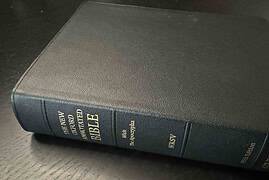
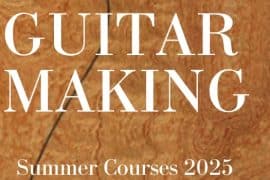
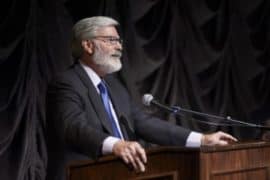


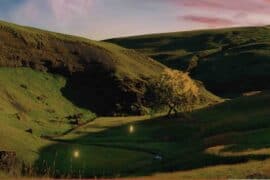
Comments are closed.